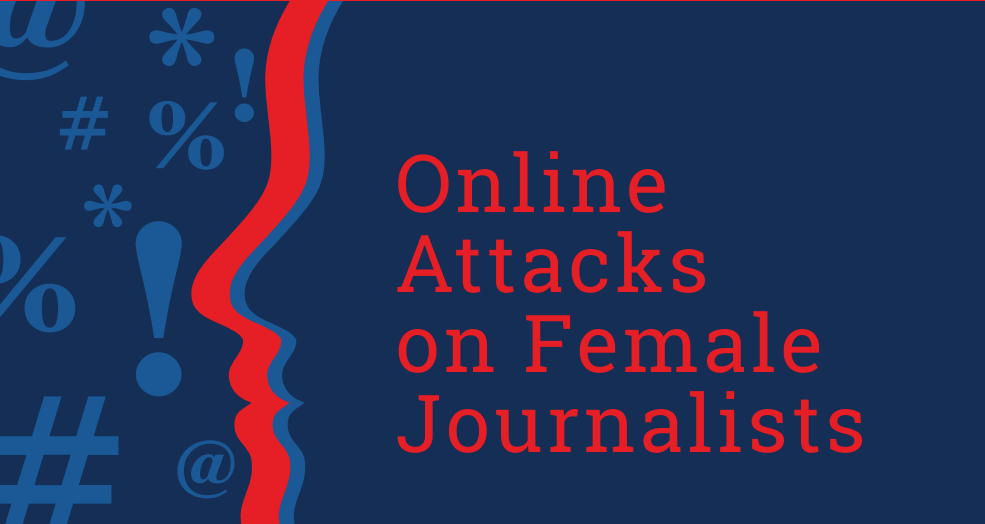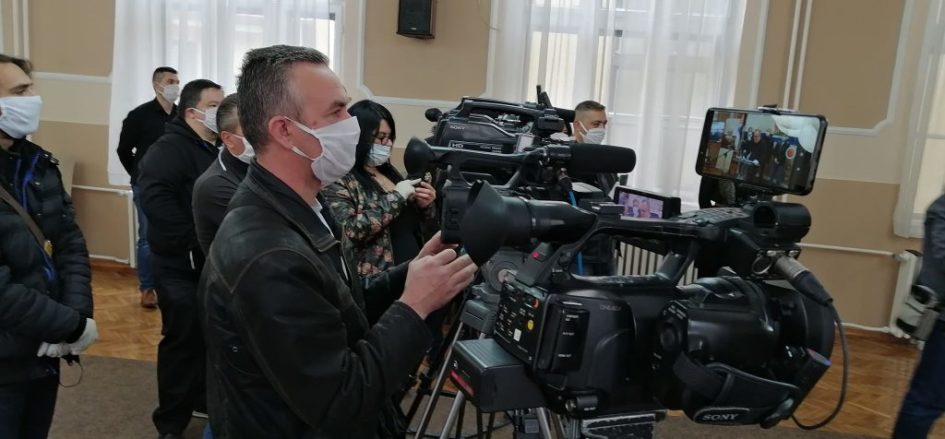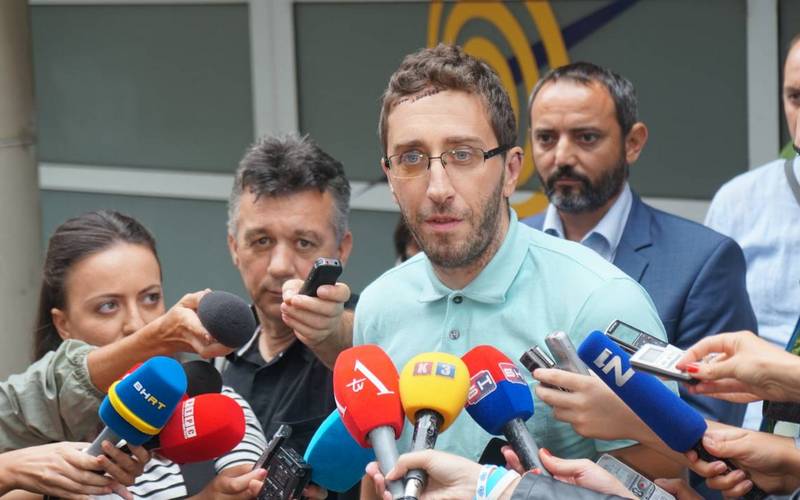
Online attacks on female journalists
Online attacks on journalists are becoming one of the greatest challenges in the system of the journalists’ safety. Female journalists are especially at risk, since they have to put up with enormous consequences due to various threats, insults and pressure. The increase of those attacks is visible in numerous reports and surveys but also activities regarding the measures to resolve such attacks and the system that is powerless to fight back and overcome the challenges of prevention and combating.

Survey about press conferences without or with limited media presence
Most media representatives in Bosnia and Herzegovina are not satisfied with the possibilities of obtaining information regarding COVID-19, and within the system of press conferences with or without the presence of journalists that was established by the crisis headquarters at all levels of government in BiH, showed a survey conducted by BH Journalists Association.
The survey involved 36 media representatives from all over the country – 61.1% of electronic media, 30.6 percent of online media and 8.3% of print media.
When asked whether they think that the current way of informing at the press conferences about the COVID-19 pandemic enables professional reporting in the interest of citizens, the majority of respondents (58.3%) answered in the negative, stating that the information is general and does not contain all necessary data.
8.3% of respondents are of the opinion that this way of informing fully meets the needs of the media, and 16.7% of respondents stated that they cannot give such an assessment.
The largest number of respondents (66.7%) believe that for timely, objective and accurate information in the public interest it is necessary to return regular press conferences with the presence of journalists on the spot, but also provide online participation with the possibility of asking questions, while 19.4% think that it should be done, but with respect to certain measures of distance and protection.
8.3% of respondents think that during the pandemic, press conferences should be completely abolished and crisis headquarters should inform citizens about all current events through announcements, ie official websites.
When asked how the media should react to the introduced practice of holding press conferences without the presence of journalists in order to protect the performance of their activities and professional and objective information of citizens, 44.4% of respondents said they were not sure what to do in this situation; 25% believe that press conferences should be boycotted and information transmitted only from official websites, and 8.3% state that there is no need for any reaction and that this way of placing information is quite sufficient.
When it comes to how many questions were answered by the authorities during the press conferences that have been held since the conference format was changed, the answers of the respondents vary – from those who state that they did not receive any answers, to those who say that all the questions they sent in a timely manner were answered. However, 27.8% of respondents stated that the response they received only partially contained the key information requested, 22.2% said they did not receive the information they requested at all, and 16.7% received the requested information.
Among the questions that the representatives of the media asked the authorities, and which they never received answers to, were those about the number of bedridden patients in hospitals, layoffs in public companies due to the COVID-19 pandemic, conditions and tests for crossing the border, lack of health personnel, the “Respirators” affair, the so-called Corona Law…
The results of survey are available HERE.

Survey with journalists: Access to public information regarding COVID-19
Since the beginning of the declaration of the state of emergency in Bosnia and Herzegovina caused by the COVID-19 pandemic, representatives of the media, but also state institutions at all levels of government, have had to adapt their way of working to specific circumstances. This meant, among other things, the introduction of a new system of helding press conferences, which implies a limited presence of media crews or no presence of journalists at all. Journalists who could not attend the press conferences had the opportunity to send questions to the authorities via e-mail.
However, although it is commendable that the institutions have implemented protective measures in this way, the BH Journalists Association has received numerous complaints from journalists that some crisis headquarters, as well as other relevant institutions, are using this situation to limit access to public information and introduce a kind of media censorship.
More than 83% of journalists in Bosnia and Herzegovina believe that the crisis staffs did not provide objective and comprehensive information to citizens about the coronavirus, according to a survey of BH Journalists Association (BHJA), conducted on a sample of 102 journalists from across the country on access to public information regarding COVID -19 and within the system of press conferences with a limited presence of journalists or completely without them.
Survey is available HERE.

Analysis of court practice in the application of the Law on Protection against Defamation on the example of two judgments of the Basic Court in Banja Luka
In 2020, the Basic Court in Banja Luka passed two judgments in civil proceedings for compensation of damage for defamation, which attracted a lot of attention of the public and, in the second case, objections and protests of journalists.
The reason for both lawsuits was information published by the Belgrade tabloid “Informer”, which was transmitted on RTRS and ATV news portals on the same day with identical content and under the same headline (“Impending coup d’état in Republika Srpska; they don’t want elections, they are toppling government on street“).
In two separate proceedings, the Basic Court of Banja Luka rendered completely different judgments in a time span of nine and a half months, although the case in both proceedings was completely identical (compensation for non-pecuniary damage due to defamation by the publication of identical content on the defendants’ news portals in both cases) and the plaintiff is also the same person (Vladimir Kovačević, journalist). Only the defendants are different (in the first case Radio-Television of Republika Srpska, abbreviated here as RTRS, as well as its responsible person, and in the second case Alternativna Television, ATV, as well as its responsible person). The judges in these two cases are also different.
The subject of this analysis, made by author Mehmed Halilovic, are both first instance judgments.
The analysis was made within the project JUFREX – Horizontal Facility II, with the support of the Council of Europe. Full text in English is available HERE.

Full report: Indicators on the level of media freedom and journalists’ safety 2019 [KOSOVO]
This research represents the findings set out in the fourth survey, conducted within the framework of the project “Regional Platform for the Western Balkans for the Promotion of Media Freedom and Security of Journalists”, outlines the situation in these areas: Kosovo, Bosnia and Herzegovina, Macedonia, Montenegro and Serbia.
The main goal of the fourth survey is to identify new developments and to compare the level of media freedom and security of journalists identified in 2016, 2017 and 2018.
The author of the report for Kosovo, done for the needs of the Association of Journalists of Kosovo is Liron Kafexholli.
